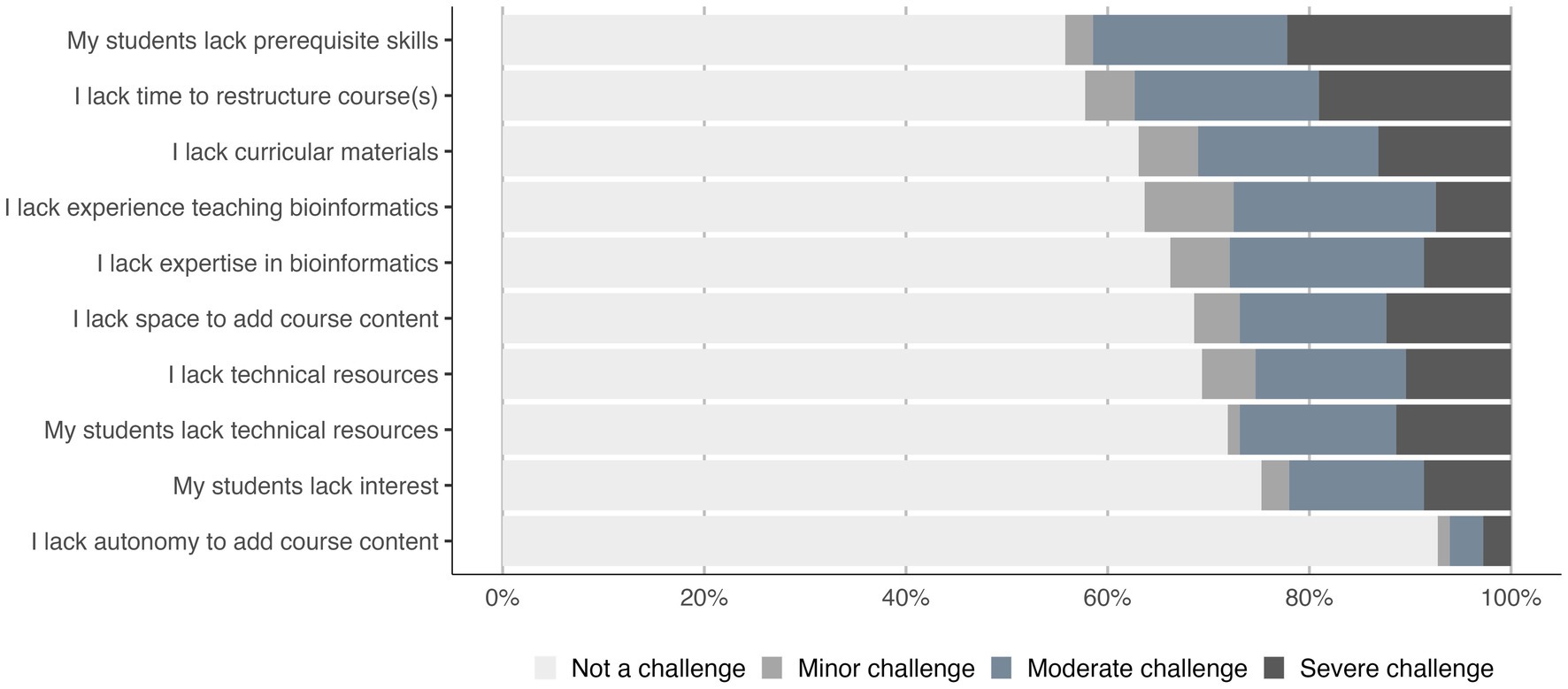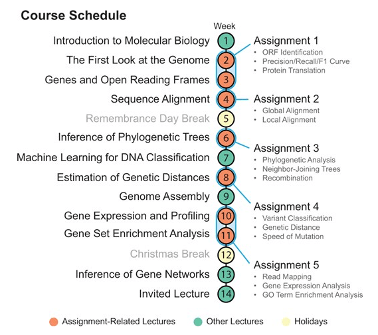Bioinformatics Tutor for Beginners
Bioinformatics Tutor for Beginners
Blog Article
Bioinformatics Tutor for Dummies
Table of ContentsSome Known Details About Bioinformatics Tutor Some Ideas on Bioinformatics Tutor You Need To KnowFascination About Bioinformatics TutorNot known Incorrect Statements About Bioinformatics Tutor Getting My Bioinformatics Tutor To Work
Of the total amount individuals involved in the training, 80% were trainees from public college organizations, while the remaining 20% came from exclusive establishments. To receive a certification of involvement, students were needed to go to at least 90% of the overall training hours. As an outcome of this need, an excellent 95% of the participants successfully acquired their certifications, having not only fulfilled the minimum presence criteria yet also completed all appointed tasks throughout the training.
During the height of the COVID-19 pandemic, specifically in between June and August 2020, the project group was entrusted with organizing specialized training in bioinformatics. This training was especially targeted at pupils from the study group Core for Study in Applied Computer at the Federal College of Pará (UFRA) The adaptation to remote understanding systems because of the pandemic produced an opportunity to check out new training approaches and digital tools that improved both reach and efficiency.
This course was created to provide an easily accessible yet extensive summary of Artificial Intelligence strategies, particularly as used in bioinformatics (Bioinformatics Tutor). This online format made it possible for involvement from trainees throughout Brazil, many of whom may not have had the possibility to attend in-person sessions.
Getting The Bioinformatics Tutor To Work
About 50% of the complete training hours were devoted to functional tasks where students constructed smart models and applications in a range of scientific domains, consisting of genes, molecular biology, and ecological information evaluation. These platforms enabled trainees to engage in real-time data adjustment, version training, and algorithm testing.
Sixty of them were connected with numerous higher education and learning organizations in the state of Pará, while the remaining twenty came from institutions situated in five various other Brazilian states. By introducing Artificial Intelligence in a practical and relevant context, the initiative offered to link the void between concept and real-world application, providing students with a strong structure for future research study or work in the field.
The training campaign created part of a more comprehensive scholastic outreach effort known as the Bioinformatics when traveling job. This task has, over the years, presented lots of pupils to the world More Help of bioinformatics blog here and computational biology. The events held under this umbrella initiative have happened throughout several areas and years, as summarized in Table 1 (Listing of events, areas, years, and overall numbers of students and instructors)
Several of these teams, at first brought together by their engagement in training occasions, have actually given that gone on to generate independent clinical research in partnership with local academic establishments. The training not only fostered clinical thinking within the context of bioinformatics but additionally sparked collaborative connections that expanded beyond the training environment.
The smart Trick of Bioinformatics Tutor That Nobody is Talking About
The very same group, excluding IH and RR, also acted as tutors for the useful training modules. Financing for the job was given via the grant 88887.200562/ 2018-00 from CAPES.
The Federal College of Pará's Workplace of Research study (PROPESP/UFPA) additionally provided financial backing, especially for the production of the last manuscript. The authors declare no financial or commercial problems of passion that could have affected the research study. All opinions and analyses expressed in this article are solely those of the authors and do not always mirror those of their particular institutions, the publisher, editors, or customers involved in the publication process.

Bioinformatics Tutor Can Be Fun For Anyone
From an instructional perspective, the training method utilized in the training was purposefully interactive. Classes were conducted in a way that encouraged trainee participation and conversation, surpassing rote memorization to check out just how concepts are created, applied in day-to-day live, and evaluated in academic settings. The instructional ideology concentrated on supporting both strong and having a hard time pupils, supplying personalized support, and building confidence through continual mentorship and persistence.

Each team, including around 36 individuals, was supported by three mentors-- a lot of whom were postdoctoral researchers with specific expertise. These mentors not just helped make the team tasks but likewise promoted their execution, ensuring that each study concern was both appropriately tough and pertinent. The objective was to supply a biologically reasonable context that participants could explore via flexible goals and accessibility to curated datasets.
For extra insights right into the technique and end results of this project-based knowing strategy, visitors are directed article to S1 Text, that includes detailed descriptions of the pedagogical framework, evaluation strategies, and task motifs used in the training sessions.
An Unbiased View of Bioinformatics Tutor
Of the overall individuals included in the training, 80% were trainees from public greater education establishments, while the continuing to be 20% came from exclusive institutions. To certify for a certificate of involvement, pupils were called for to attend at least 90% of the total training hours. Notably, past the trainees that enlisted in the training sessions, seven knowledgeable teachers took part in supplying the programs, while three committed study teachers coordinated the overall training process. Around 50% of the complete training hours were dedicated to useful tasks where trainees built smart designs and applications in a variety of scientific domain names, consisting of genes, molecular biology, and environmental information evaluation. The training not only cultivated clinical reasoning within the context of bioinformatics yet also triggered collaborative relationships that expanded beyond the training setting.
Report this page